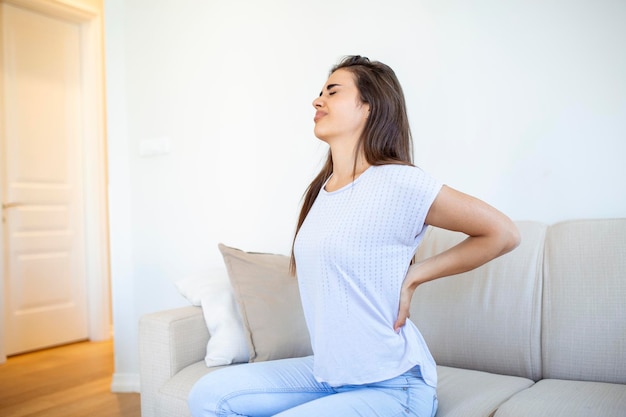Rasnairandadi Kashayam Uses – Traditional Ayurvedic Remedy for Health & Healing

Introduction to Rasnairandadi Kashayam
Rasnairandadi Kashayam is an important Ayurvedic decoction made from a combination of potent herbs known for their anti-inflammatory, analgesic, and rejuvenating properties. This traditional remedy has been used for centuries to treat a variety of health conditions, primarily those related to joint pain, inflammation, and respiratory issues. By incorporating Rasnairandadi Kashayam into your wellness routine, you can benefit from its powerful therapeutic properties and enhance overall health.
Don't wait or self medicate. Start chat with Doctor NOW
Historical Roots & Ayurvedic Significance
Rasnairandadi Kashayam holds a significant place in Ayurvedic healing due to its ability to balance the body's doshas, particularly Vata and Kapha. The decoction is used to manage joint disorders like arthritis, reduce inflammation, and promote healing. Ancient Ayurvedic texts recommend this remedy for individuals suffering from chronic pain, respiratory ailments, and digestive imbalances. Its enduring relevance lies in its holistic approach to treating ailments by addressing the root causes rather than merely alleviating symptoms.
Key Components & Therapeutic Benefits
1. Herbal Composition
Rasnairandadi Kashayam contains a variety of herbs, each chosen for their complementary actions in promoting health and healing:
- Rasna (Pluchea lanceolata): Known for its anti-inflammatory and pain-relieving properties.
- Iranda (Ricinus communis): Effective in alleviating joint pain and reducing swelling.
- Ginger (Zingiber officinale): A powerful anti-inflammatory herb that helps with digestion.
- Garlic (Allium sativum): Known for its immune-boosting and anti-inflammatory effects.
- Black Pepper (Piper nigrum): Aids in enhancing the absorption of other herbs and promotes better digestion.
2. Anti-Inflammatory & Pain Relief
Rasnairandadi Kashayam’s potent herbal composition works synergistically to reduce inflammation and alleviate pain. The combination of Rasna and Iranda helps soothe joint pain, while Ginger and Garlic enhance blood circulation and further support the reduction of swelling and discomfort.
3. Respiratory Health & Detoxification
Beyond its use in joint health, Rasnairandadi Kashayam is also beneficial for respiratory issues. Ginger and Garlic have expectorant properties that help clear the airways, reduce congestion, and improve lung function. The decoction's detoxifying properties also help cleanse the body by removing impurities and enhancing overall vitality.
4. Supports Digestive Health
Rasnairandadi Kashayam promotes better digestion by improving metabolism and alleviating conditions such as bloating and indigestion. Black Pepper acts as a digestive stimulant, helping the body absorb nutrients more effectively while reducing the chances of gas formation and bloating.
How Rasnairandadi Kashayam Works: The Science Behind the Decoction
The herbs in Rasnairandadi Kashayam possess bioactive compounds that trigger various physiological processes to heal the body. Ginger contains gingerol, which is known for its anti-inflammatory effects. Garlic provides allicin, which supports immune function and reduces inflammation. Rasna and Iranda work together to treat joint pain and stiffness, while Black Pepper improves digestion and enhances the effects of the other herbs. This multi-faceted mechanism helps in addressing pain, inflammation, respiratory health, and digestion, promoting holistic healing.
Choosing the Right Ayurvedic Remedies & Guidance
When using Rasnairandadi Kashayam, consider the following:
- Consult Certified Ayurvedic Practitioners: Personalized guidance ensures that the decoction suits your health needs and body constitution.
- Opt for Organic Herbs: Choose products that contain high-quality, organic herbs for maximum effectiveness and safety.
- Source from Reputable Vendors: Always buy Rasnairandadi Kashayam from trusted Ayurvedic practitioners or pharmacies to ensure you receive the authentic and properly formulated remedy.
Recommended Dosage & How to Use Rasnairandadi Kashayam
The dosage of Rasnairandadi Kashayam varies based on individual health conditions. A general guideline is as follows:
- Dosage: Typically, 15-30 ml of the decoction is taken once or twice a day.
- Consumption: It can be taken either on an empty stomach or after meals, depending on the condition being treated.
- Enhancing Taste: If the bitterness is difficult to tolerate, the decoction can be diluted with warm water or mixed with honey.
- Professional Guidance: It is advisable to follow the dosage recommendations of a qualified Ayurvedic professional based on your specific needs.
Potential Side Effects & Precautions
Rasnairandadi Kashayam is generally safe when used appropriately. However, some precautions should be taken:
- Digestive Upset: Some individuals may experience mild stomach discomfort or an increase in bowel movements.
- Pregnancy & Nursing: Pregnant or breastfeeding women should consult an Ayurvedic professional before using this decoction.
- Allergic Reactions: If any allergic reactions occur, discontinue use immediately and seek medical advice.
- Start Low: It is recommended to begin with a smaller dose and gradually increase based on tolerance.
Frequently Asked Questions For Rasnairandadi Kashayam
How does Rasnairandadi Kashayam help with joint pain and inflammation?
Rasnairandadi Kashayam is rich in anti-inflammatory herbs like Rasna and Iranda, which work together to reduce joint pain, swelling, and stiffness. The decoction alleviates discomfort associated with conditions such as arthritis and other inflammatory joint disorders by soothing the inflamed areas and promoting healing.
Can Rasnairandadi Kashayam help with respiratory conditions?
Yes, Rasnairandadi Kashayam supports respiratory health due to the expectorant properties of Ginger and Garlic, which help clear mucus and congestion from the airways. It can be used for conditions such as asthma, bronchitis, and common cold symptoms, improving lung function and overall respiratory health.
How should I take Rasnairandadi Kashayam for best results?
Rasnairandadi Kashayam is typically taken in a dosage of 15-30 ml, once or twice daily. It can be consumed on an empty stomach or after meals, depending on your Ayurvedic practitioner’s advice. To make it more palatable, dilute it with warm water or add a bit of honey.
Can Rasnairandadi Kashayam be used for digestive issues?
Yes, Rasnairandadi Kashayam helps improve digestion by stimulating metabolism and alleviating issues like bloating and indigestion. Black Pepper enhances digestive absorption, while Ginger soothes the digestive system and promotes better nutrient assimilation.
Are there any side effects of using Rasnairandadi Kashayam?
Although Rasnairandadi Kashayam is generally safe, some users may experience mild digestive upset or an increase in bowel movements due to its detoxifying effects. It’s important to start with a lower dose and consult a healthcare provider if any adverse effects occur.
How long does it take to see results from Rasnairandadi Kashayam?
Results can vary depending on individual health conditions. For joint pain relief, some people may notice improvements within a few weeks, while digestive or respiratory benefits may take longer. Consistency in usage is key to experiencing the full therapeutic benefits.
Where can I purchase authentic Rasnairandadi Kashayam?
Authentic Rasnairandadi Kashayam can be purchased from trusted Ayurvedic pharmacies, certified practitioners, or reliable online stores. It is crucial to ensure that the product is made from high-quality, organic herbs to guarantee its safety and efficacy.
Conclusion & Expert Insights
Rasnairandadi Kashayam is a potent Ayurvedic remedy that addresses joint pain, inflammation, respiratory issues, and digestive imbalances. Its holistic therapeutic properties make it a valuable addition to any Ayurvedic treatment plan. Always consult with a qualified Ayurvedic practitioner to determine the correct dosage and usage based on your specific health needs.
References & Further Reading
- Sharma, P.V. (1995). Ayurvedic Healing: A Comprehensive Guide.
- Lad, V. (2002). Ayurveda: The Science of Self-Healing.
- National Institute of Ayurveda:
- Journal of Ayurveda and Integrative Medicine for research articles on herbal healing remedies.
Got any more questions?
Ask Ayurvedic doctor a question and get a consultation online on the problem of your concern in a free or paid mode.
More than 2,000 experienced doctors work and wait for your questions on our site and help users to solve their health problems every day.



